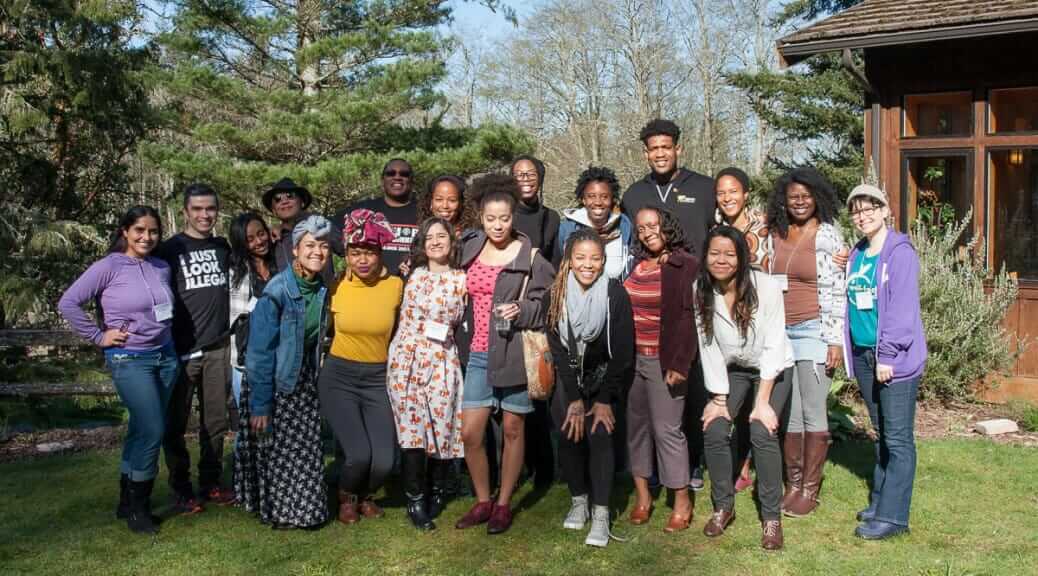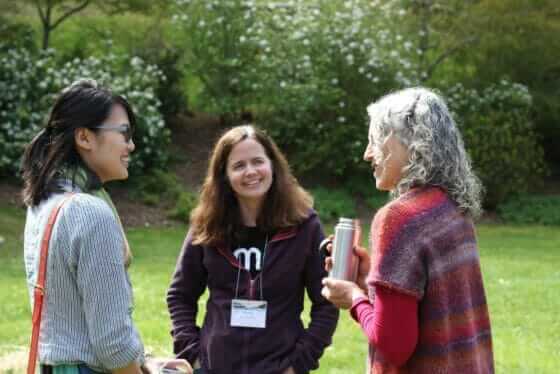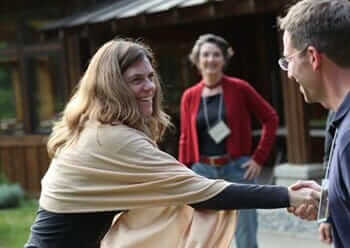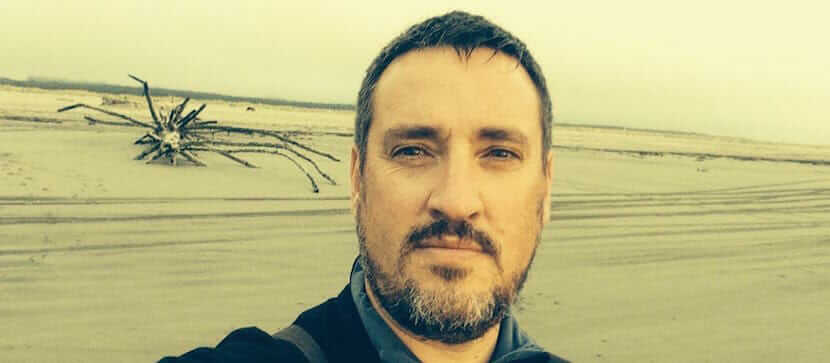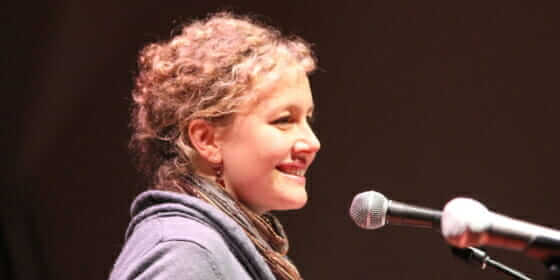For over four decades, the Whidbey Institute has been dedicated to learning in community. Aligning our internal organizational practices with our values and goals, we strive to live into a compassionate culture on our campus and beyond.
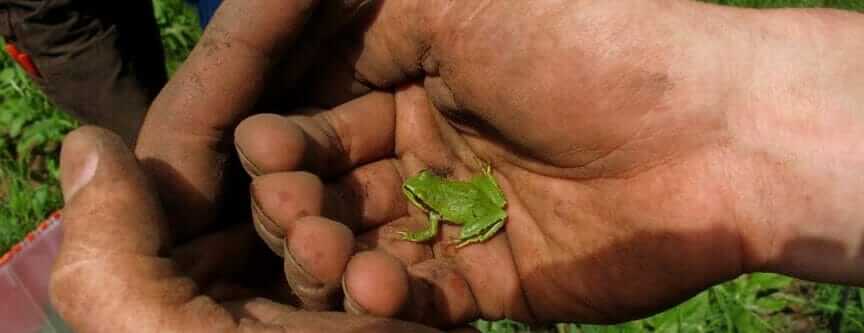
“All the work [we’ve] been doing has a foundation of connecting with yourself, connecting with each other, and connecting with the Earth.”
—Maggie Mahle, former Land Steward
Empowering individuals to act on behalf of the needs of the whole has been an informal part of our culture since the beginning, and has recently been formally integrated as part of our constitutional governance system.
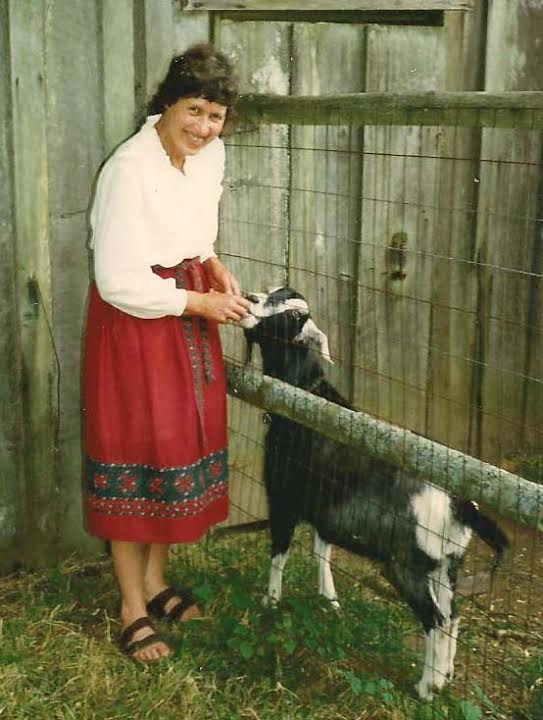
“Back at the very beginning, when we didn’t have a clue about what we were doing at all, I got a letter from this woman who wanted to know what she could do to help. I didn’t even know how to answer it, so I didn’t. It was one of the only letters to which I didn’t even write back. Just a few weeks later, this VW bug drove down the road. It was Wilma. She said, ‘you didn’t answer when I wrote, so I figured you needed secretarial help.’”
—Vivienne Hull, on the arrival of Wilma O’Nan
Wilma O’Nan, pictured with her goat Clover, arrived in the early 1970s and worked here as an employee in varied roles (including secretarial) for the next six years. They are memorialized with a copper beech tree, planted in honor of Wilma and Clover by Wilma’s daughter Cathi in 2016.
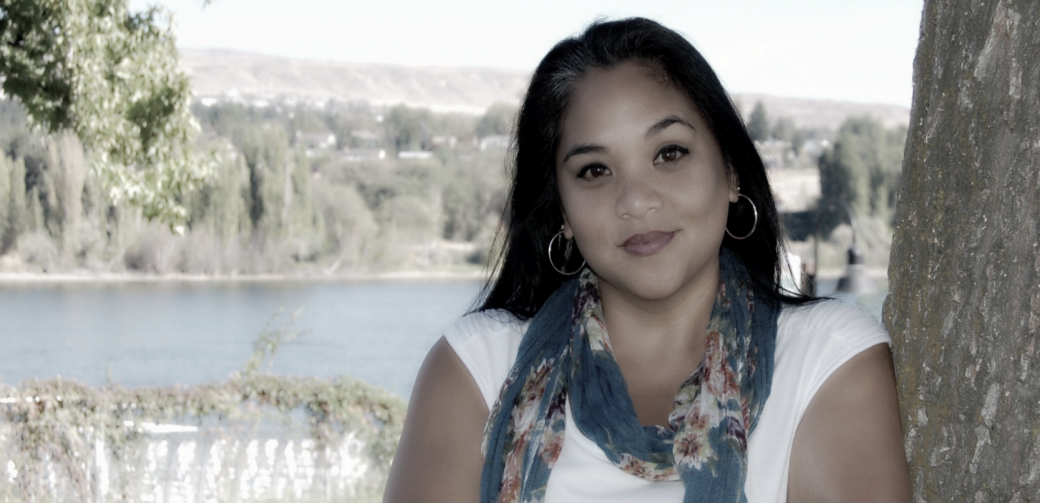
“We cannot change the world or seek transformation if we don’t start with ourselves. If we change the way we perceive the world, the world will change. We are all interconnected—not only to other people, but to every living being on Earth.”
—GERRY EBALAROZA-TUNNELL, PROGRAM FACILITATOR
“Life, in all its evolutionary wisdom, manages ecosystems of unfathomable beauty, ever evolving toward more wholeness, complexity, and consciousness.”
—FREDERIC LALOUX
Our Institute board and staff pursue the principles of self-management and distributed authority based on peer relationships. With resources and tools such as Reinventing Organizations, by Frederic LaLoux, and Holacracy, a peer-to-peer “operating system” for distributed authority, we take responsibility to sense and respond to the needs and opportunities of the organization with full accountability, transparency, and commitment.
Self-management in practice
- Sense & respond rather than predict & control
- Welcome wholeness—be fully ourselves at work
- Build on our strengths
- Treat our organization as a living system
- Model adaptive leadership
- Recognize tensions as the gap between where we are and where we long to be
 “When people are engaged to bring their intelligence to work, to take responsibility, and to step forward, organizations become more creative.”
“When people are engaged to bring their intelligence to work, to take responsibility, and to step forward, organizations become more creative.”
—Chris Clark, former board member
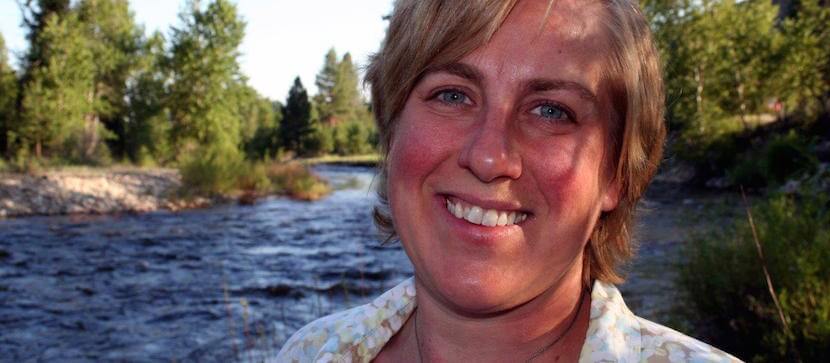 “It makes me feel proud to be a part this organization that is an engaging, creative presence in the world. You’ve gotten really good at talking about things that are on the cusp of our cultural understanding, and still hard to describe.”
“It makes me feel proud to be a part this organization that is an engaging, creative presence in the world. You’ve gotten really good at talking about things that are on the cusp of our cultural understanding, and still hard to describe.”
—Jill Sheldon, board member

